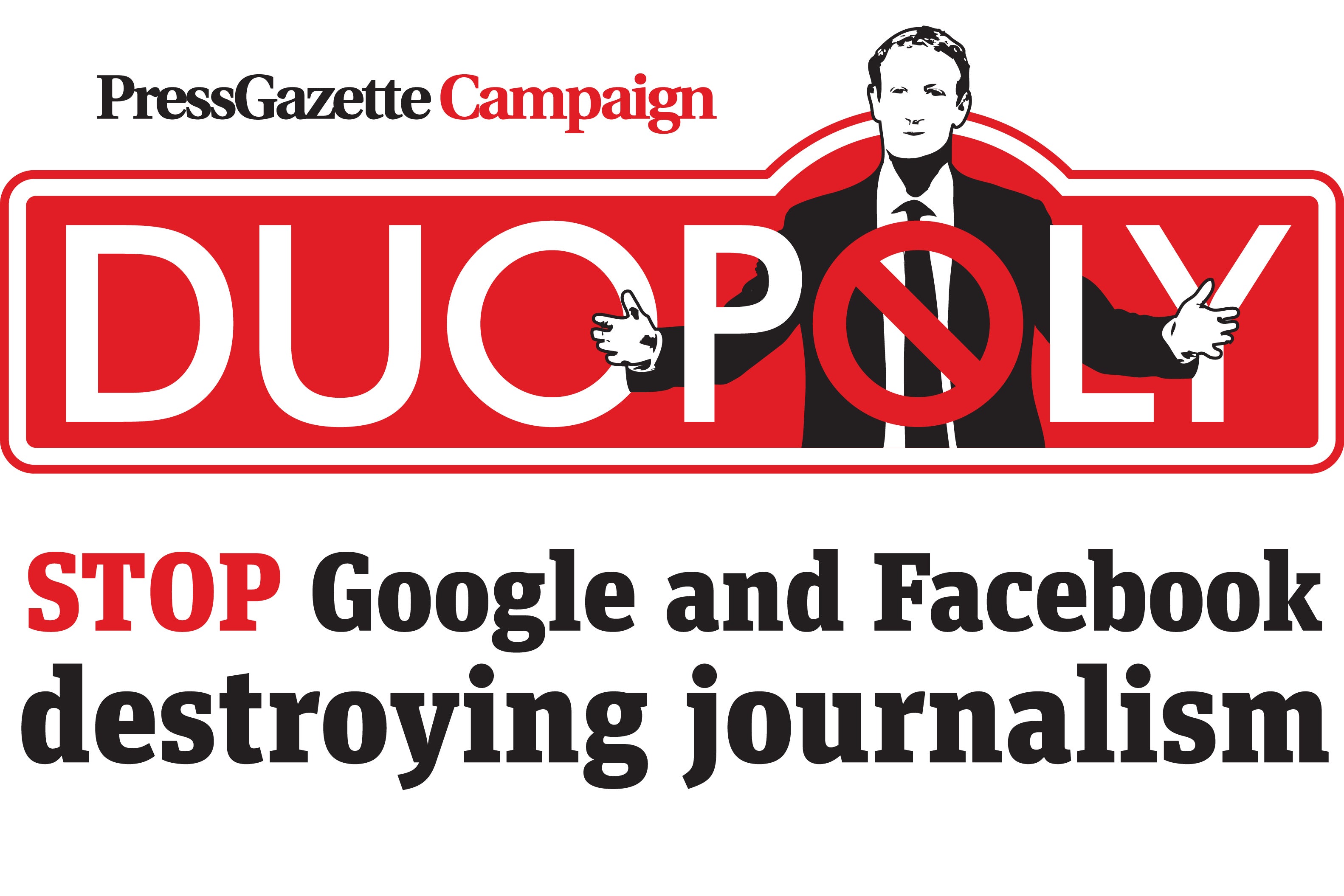
“They are geeks who want an algorithm to replace humans.” This is the judgement of Andrew Orlowski about some of those at the top of Google.
Orlowski knows new media giants like Google and Facebook better than most having covered their rise since 2000 as executive editor of independent tech news website The Register. He spent the first six years of his time for the title based in San Francisco.
He said he supports the Press Gazette Duopoly campaign launched to stop Google and Facebook destroying journalism. It highlights the fact that most digital advertising, and nearly all new online advertising, goes to these two US giants and calls for more value to be returned to content creators in the news industry.
Orlowski said: “Twenty years ago some venture capitalists placed a big bet on how the internet would be, which involved huge server farms and free content. But there’s nothing inevitable about where we are now. Google and Facebook are very good at lobbying and putting forward a very self-interested version of the future.”
He added: “They are like a white van network carrying stuff around, they don’t make the stuff that’s in the vans. We have a very distorted model where they get to accrue the value from doing this. It’s had a catastrophic effect on news and cultural industries.
“Google and Facebook destroy markets before they can be created and we need a market for news.
“There currently isn’t enough money going into the system because they keep driving down the value of content.”
The latest figures from the Internet Advertising Bureau suggest that online advertising now makes up more than half of the £20bn UK advertising market. More than £5bn a year is spent with Google and Facebook online versus around £2bn which goes to news brands in print and online. Ten years ago the regional and national newspaper industry advertising market was worth £5bn a year.
Orlowski believes the current economic model, which allows Google and Facebook to make billions from content which they have acquired for nothing, has been allowed to continue partly because “they have huge political influence”.

He said: “I remember going to talk at a Tory Party conference a few years ago and I was explaining that digital stuff has to have property rights too. I said we could have a market for digital content. They thought that was amazing.”
He added: “If you are always getting your own way, why would you change? If you are pushing at the limits of what is acceptable all the time and getting what you want, most people would just carry on pushing.”
Speaking about the mentality of those who are at top of Google and Facebook, he said: “They are like a small child who has been told from birth that they are a genius.”
And talking about some of the leaders of Google, he said: “They are geeks who want an algorithm to replace humans. There is an obstinacy in the company culture.”
Asks what he thinks the answer is for the news industry, he said: “There needs to be carrots and sticks. Whatever that combination might be there has to be an incentive to create a vibrant news market that involves real money changing hands.”
Orlowski backs current European Union proposals to improve “neighbouring rights” so that publishers and other content creators can have more control over the way their work is used by Google, Facebook and other tech media giants. The changes could allow news publishers to enforce copyright control over headlines and short excerpts which are shared over social media and indexed by Google.
He said: “These neighbouring rights aren’t going to break the internet as some people say. Strong law and market intervention could help us redress the balance. It would allow news publishers to be able to refuse to let these distributors use their stuff.
“Google and Facebook are using their proxy groups to kick up a fuss about this, but anything that strengthens digital property rights is a good thing for news publishers.”
He said part of the answer has to come from the news industry itself: “It should be much easier to pay for news. People love news and they love spending money: the economy’s biggest problem is consumer debt.
“But when I lose a credit card, I have to take out 30 or 40 subscriptions. It isn’t just a case of Google and Facebook behaving badly. It would be great if I only have to pay once or twice: this is the kind of structural reform that’s long overdue. But it means news organisations acting with a common interest and building market-making mechanisms.
” Then the news industry could then turn around to Facebook and say ‘You’re not getting this stuff free any more’, and it could do so from a position of strength.”
Email pged@pressgazette.co.uk to point out mistakes, provide story tips or send in a letter for publication on our "Letters Page" blog
